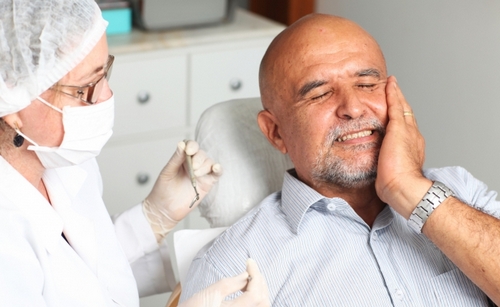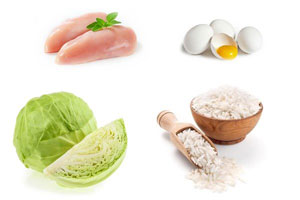Probably one of the most terrible pain, there are at the person is the tooth. When a toothache, it is almost impossible to tolerate, and then even the most ardent lover of dentists is to give the doctor. But not all know why my teeth hurt, and how you can avoid these unpleasant feelings.
Together with the dentist-therapist of clinic “Strident” Elena Gennadyevna ZIMNICKAS will deal with the most common causes of toothache.
The most common causes of toothache is dental caries, pulpitis, periodontitis and pericoronitis.
Caries
It is a disease of the hard tissues of the tooth, leading to the destruction of enamel and dentin. First, the caries affects the natural grooves on teeth (fissures), as well as areas where a large number of to accumulate plaque is interdental spaces and pricesnew area. With caries of hard tooth tissues demineralized and softened, and subsequently, the tooth is formed a defect in the form of a cavity.
Caries has several stages, the process is elementary, superficial, medium and deep. Initially, the decay is nearly asymptomatic – the main disadvantage experienced by people connected with the food getting stuck in the carious cavities. Another symptom of dental caries, which usually don’t pay much attention, is a short-term pain from chemical, mechanical, and thermal stimuli.
Simply put, the enamel is already damaged does not protect the tooth from exposure to hot tea or ice water or against mechanical impact, and we at this moment experience pain. But since it only lasts a few seconds, usually we take it seriously.

When the process reaches the last stage of deep caries, unpleasant sensations already becoming difficult to ignore. With deep caries the patient experiences pain when getting food and fluid into the injured area, pain when brushing your teeth (irritation from contact with paste and brush), the pain of any external stimuli, temperature, chemical, mechanical.
After the stimulus is removed, the pain subsides until the next episode. At this stage for the quality of life is significantly reduced. But if a person stubbornly continues to suffer and does not go to the doctor, gradually, the inflammatory process involves the tooth nerve (pulp), and suffers pulpitis.
Pulpitis
This inflammation of the pulp (nerve) of the tooth, the process is usually accompanied by acute pain. Pulpitis occurs as a reaction to constant exposure to stimuli that enters the pulp through the carious cavity, and also due to the influence of microorganisms and toxins on the nerve of the tooth. Irritation of the pulp leads to changes in blood flow, which causes increased pressure on the nerve fibers.
At the initial stage of pulpitis is manifested in mild pain, which is when the removal of the stimulus. At this stage, the inflammation goes away by itself, if you remove the stimulus – that is, to cure tooth decay and seal the tooth, isolating the pulp from external influences.
If nothing is done, the inflammation gradually increases, and the pain increases. There comes a stage of acute pulpitis, the pulp undergoing irreversible changes. The pain is easily raised by any stimulus. The option “do not eat, drink, keep your mouth shut” will not save you from the pain. Very often, tooth pain is usually worse at night.
The pain in acute pulpitis can be very different:
- Acute or obtuse
- Pulsating or constant
- Localized or diffuse
- Short or long
If you ignore your condition and tell your dentist, the next stage – the complications likely to develop in acute pulpitis, including purulent pulpitis.
Purulent pulpitis
This is the most severe form of pulpitis often it ends with necrosis of the pulp. When purulent pulpitis the pain becomes especially unbearable and sharp, at night, she often reinforced. The pain experienced in the temporal region, the ear, the eye socket other teeth – often in this state a person thinks that hurts his already teeth.
Chronic pulpitis
The patient with acute pulpitis may become chronic. The pain is not as sharp and constant, sometimes silent for a long time. If a cavity inaccessible to stimuli, chronic pulpitis can occur virtually painlessly.
The symptoms of chronic pulpitis
- The pain in the cold
- Pain when taking hot food
- The pain with temperature changes (for example, when you leave the house on a cold street)
- A long aching pain if the carious cavity is Packed with the remnants of food
Chronic pulpitis may at any time escalate and give you all an unforgettable experience of acute pulpitis.
If chronic pulpitis is not treated, it can advance to periodontitis.
Acute periodontitis
Periodontitis is an inflammatory process in the periodontal (periodontal) tissues in the apex of the tooth root. Often, the inflammation takes the cement and dentin of the tooth root and alveolar bone. Periodontitis in most cases is caused by the damage of the pulp, i.e. pulp.
Symptoms
- The pain is constant, throbbing, with a clear localization
- The pain is worse from any touch to the tooth, including the chewing
- The pain may spread to the part of the face
- Headache
- General weakness
- Temperature rise
- Swelling of the cheek
- Pain in the gums, redness and swelling in her
- Increasing submandibular and mental lymph nodes
- Possible pus from root canal
Chronic periodontitis
Chronic periodontitis sometimes develops with no symptoms or this stage may go acute periodontitis. Chronic periodontitis develops when the pulp dies and the tooth creates favorable conditions for development of microorganisms. Sometimes chronic periodontitis can appear after injury of the tooth.
Symptoms
- Change the color of tooth enamel
- The presence of fistula on the gums
- Pain when chewing solid food
Chronic periodontitis can have many very serious complications: granuloma, a root cyst, pathological fracture of the mandible, periapical abscess, phlegmon and others.
Perikoronit
This difficulty eruption of wisdom teeth (eights). In the case when a tooth cannot erupt inflamed surrounding soft tissues and periosteum behind the tooth holes. Inflamed gums constantly injured during chewing, which further exacerbates the process.
The inflammatory process may gradually lead to development of purulent perikoronit.
Symptoms:
- Constant pain, aggravated by chewing
- The pain experienced in the ear and temporal region
- Pain when opening the mouth
- Increase and tenderness in the submandibular lymph nodes
- Sharp pain when pressing on the gums, possible purulent discharge
- The increase in body temperature
In the future, the pain continues to worsen, the body temperature to rise. The patient’s General condition deteriorates considerably, and may develop posudomoechnaja of periostitis.
How to avoid toothache?
It is actually very simple.
The General condition of the teeth affects overall health and way of life. If a person leads a healthy lifestyle, balanced feeds, attentive to the oral hygiene, the chance to keep the teeth in perfect order he is much more.
Regularly visit your dentist – preventive examinations, preferably one to two times per year, ideally they should combine with professional hygienic cleaning of the teeth, followed by fluorination and strengthen the enamel.
The doctor will help you find the right toothpaste and brush to show you how to properly brush your teeth. Be sure to floss and rinse the mouth.
Please note: some very serious dental disease can occur completely asymptomatic! And to discover them is possible only at a stage when it is impossible to save the tooth. Therefore, regular preventive visits to the dentist necessary for everyone!




Just desire to say your article is as astonishing. The clarity in your post is simply nice and i can assume you are an expert on this subject. Well with your permission allow me to grab your feed to keep updated with forthcoming post. Thanks a million and please carry on the gratifying work.
Free stuff, Free samples, Special offers, Coupons and US freebies. We update our website daily with new US freebies.
Right away I am going away to do my breakfast, later than having my breakfast coming yet again to read further news.